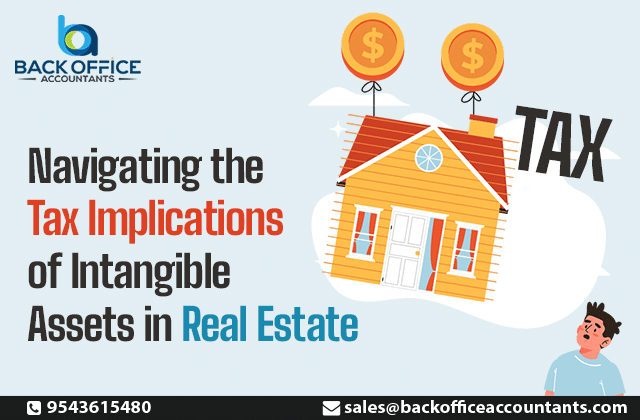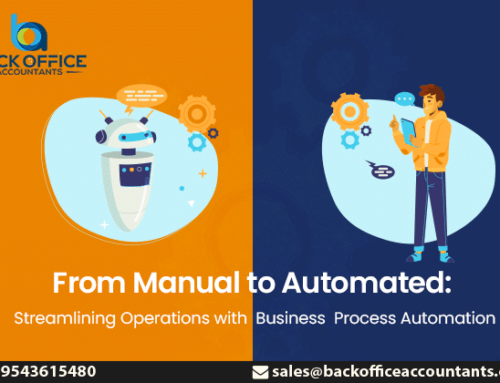Navigating the tax implications of intangible assets in real estate is one of the most challenging tasks I’ve encountered. From difficulties in valuation to classification challenges, varying tax treatments, and increased risk of disputes, it all comes together to create one of the most complex and time-consuming challenges in the industry.
Failure to accurately classify and manage intangible assets can lead to significant consequences—such as overstatements, understatements, audits, disputes, and penalties that are both time-consuming and costly. The tax implications can be disastrous for real estate businesses, affecting financial health, reputation, operational efficiency, and more.
If you’re a real estate business that hasn’t yet faced challenges with intangible asset taxation, know this: you will soon encounter problems. Fortunately, you can avoid them all with the right guidance and diligence.
In this blog, we first make you aware of the reasons behind the challenging nature of taxing intangible assets and then provide you with solutions to address them effortlessly. Read on!
Challenges in Intangible Asset Taxation in Real Estate:
Constant Changes to the Tax Law:
Tax laws are subject to frequent modifications and updates, making it difficult to stay current and perfect existing practices. Moreover, each time the law changes, the interpretation of the tax code comes into play, leading to varying opinions on how assets must be treated.
Intangible Asset Valuation:
Valuation of intangible assets like lease acquisition fees and goodwill can be highly subjective and reliant on assumptions and estimates. Even with the right estimation, the value of intangible assets fluctuates over time, potentially demanding tax adjustments and periodic revaluations.
Classification Challenges:
The distinction between intangible and tangible assets can make it difficult to classify certain assets correctly as the line blurs. Additionally, some assets have both tangible and intangible components, further complicating classification. These complexities can lead to incorrect classification, increasing the risk of penalties and interest.
Varying Tax Treatments:
Tax treatments vary between states, countries, and even localities, making cross-border transactions a complete headache. Different intangible assets have different tax treatments, making in-depth, asset-specific knowledge indispensable.
Increased Risk of Tax Disputes:
All the above challenges create a web of problems and drastically increase the risk of tax disputes. IRS disputes, burdens of proof, and penalties are common in these situations. Litigation costs and time consumption are high for all parties involved.
Absence of Clear Guidance:
Intangible assets have few specific tax rules, which makes them more uncertain. Taxpayers often have to rely on case law and IRS rulings for references, making their entire case inconsistent. Certain emerging industries, like technology, may have unique intangible asset challenges with limited specific tax guidance. All these factors demand specific expertise, which is often lacking.
Adding to the above tax treatment for intangible assets often depends on specific facts and circumstances. Careful analysis and dealing with them on a case-by-case basis become absolutely necessary. All these factors further increase the importance of expert help, which most businesses and individuals delay.
The best way to solve all these challenges is to hire the right accounting and bookkeeping firms with specific expertise and a track record in solving these complex issues.
Outsource Your Real Estate Taxation to Back Office Accountants:
Real estate taxation is riddled with complexities that demand specialized expertise to navigate. Deductions, credits, and exemptions are often a nuisance as they are subject to frequent changes. They can vary based on ownership structure, property type, and even geographic location.
Additionally, real value assessments of tangible assets such as gifts, leases, and derived income can be challenging.
To manage the intricacies of real estate taxation, minimize risks, and optimize returns, property owners and businesses should seek help from dedicated professionals who have perfected the art of real estate taxation. If you’re in the same boat, we suggest contacting us at Back Office Accountants.
As one of the leading bookkeeping and accounting firms that manage and handle accounts receivable, accounts payable, and bookkeeping demands of real estate businesses, we are well versed with the taxation of real estate assets.
Partnering with some of the leading real estate businesses, we have managed the complexities of their taxation processes while minimizing the total tax burden and simplifying the entire procedure. Our team of professional back-office accountants works closely with every client to understand their unique situation and craft tailored strategies that provide the best possible solutions for their specific circumstances. We don’t just offer help; we create standardized procedures that streamline the entire process, helping you set a smooth workflow that benefits you every year. If you are a real estate business looking for assistance with taxation, you can contact us here: https://www.backofficeaccountants.com/







